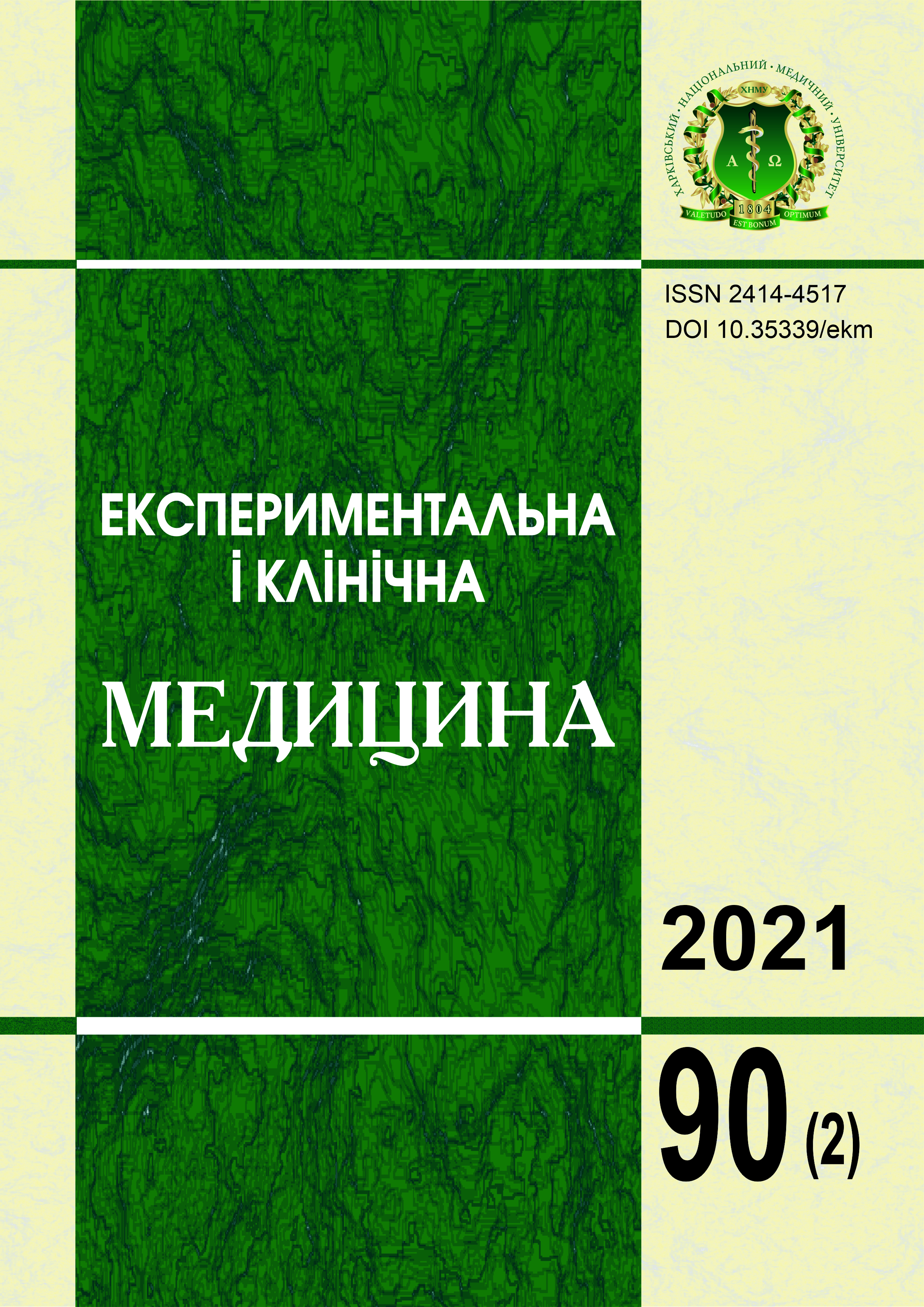Abstract
Dementia is one of the most relevant problems in modern medicine, as the number of patients suffering from various forms of this disease is increasing every year. Currently, dementia affects about 47 million people on the planet, according to forecasts by 2030 this figure will double. The global economic damage from dementia is more than $ 600 billion annually and this figure is growing every year. According to the results of the study, a serious illness of a loved one is a severe stress for relatives of patients with dementia. In 72.3% of examined women and 59.8% of men was found a disturbance of the psycho-emotional sphere. They complained of low mood (76.9% of women and 55.3% of men), depression (72.3% and 65.8% respectively), feelings of anxiety, constant internal tension (81.2% of women and 65.9% of men), sleep-wake cycle disorders (55.8% and 53.9% respectively), general weakness, lethargy and rapid fatiguability (36.8% of women and 31.1% of men), confusion (72,3% and 65.7% respectively). The following variants of emotional disorders were identified in the subjects: anxious, depressive, astheno-apathetic and dysphoric, based on data obtained during the study. Dementia patient’s relatives are characterized by emotional disorders, mainly from anxious-depressive register, the emergence of maladaptive behavior during care of an ill family member, psychosocial maladaptation, disruption of interpersonal relationships and deformation of family interaction. Obtained results indicate the need to develop medical and psychological support for dementia patient’s relatives.
Keywords: cognitive disorders, family members, maladaptive behavior, emotional disorders.
References
Shevchenko-Bitenskyi KV. Cognitive disturbances in patients with mixed dementia of different degree of expression complicated by hallucinator-paranoid disorders. Experimental and clinical medicine. 2019;3(84):46-53. DOI: 10.35339/ekm.2019.84.03.07.
Mudrenko IG. Clinical-psychopathological features of patients with dementia in Alzheimer’s disease with high risk of suicide. Inter Collegass. 2017;4(4):203-10. DOI: 10.35339/ic.4.4.203-210.
Maruta N, Potapov A, Mudrenko I, Sotnikov D, Lychko V. Clinical-psychopathological characteristics of patients with suicidal behavior in mixed dementia. Psychiatry, psychotherapy and clinical psychology. 2018;8(1):46-59. [In russian].
Maruta NO, Shevchenko-Bitensky KV, Kalenska GY. Clinical and psychopathological characteristics and social functioning of patients with hallucinatory-paranoid disorders in moderate vascular dementia. Med. perspekt. 2020;25(1):185-92. DOI: 10.26641/2307-0404.2020.1.200419.
Kozhyna HM, Strelnikova IM, Zelenska KO. (2018). Method of treatment of psychotic disorders in Alzheimer's disease. Information letter on innovations in the field of health care No.268. Kyiv: Ukrmed-patentinform; 2018. 4 p. [In Ukrainian].
Kaminska A. System of medical-psychological support of the family where a patient with endogenous mental disorder lives. Norwegian Journal of development of the International Science. 2019;1(37):15-21.
Herasymuk VA. Porivnialnyi analiz stresovoho navantazhennia i stanu simeinykh stres-protektyvnykh resursiv u druzhyn khvorykh na paranoidnu shyzofreniiu, zalezhno vid tryvalosti zakhvoriuvannia [Comparative analysis of stress load and the state of family stress-protective resources in wives of patients with paranoid schizophrenia, depending on the duration of the disease]. Fundamental and applied researches in practice of leading scientific school. 2018;29(5):93-9. [In Ukrainian].
Pshuk NG, Kaminska AO, Stukan LV. Psychoeducational module as a component of complex system of medical-psychological support for families, where a patient with endogenous mental disorder lives. Norwegian Journal of development of the International Science. 2019;1(34):15-9.
Dikhtiar VO. Peculiarities of family interaction in schizophrenic patients from the point of view of the psychotherapeutic potential of the family. Materials of the International Scientific and Practical Conference "New Ideology of Family and Family Relations" (Kharkiv, 26 Nov 2009). P. 25-7.

